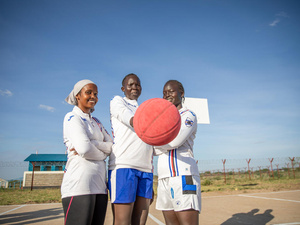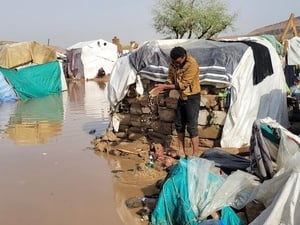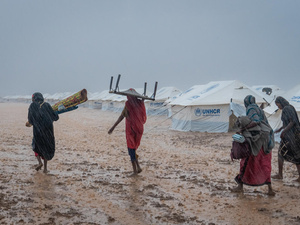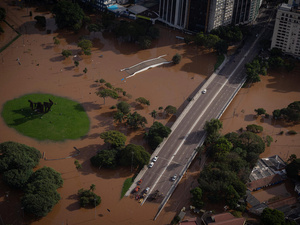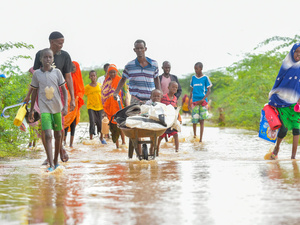UNHCR urges continued protection for asylum seekers from Southern and Central Somalia.
UNHCR urges continued protection for asylum seekers from Southern and Central Somalia.
UNHCR has released updated guidelines on the international protection needs of people fleeing Southern and Central Somalia. Although security has improved in some parts of Southern and Central Somalia, armed conflict continues. Widespread insecurity and human rights abuses continue to compel Somalis to leave their country. More than 42,000 Somalis sought asylum in neighbouring countries and elsewhere in 2013.
UNHCR's new guidelines underscore the need for governments to assess applications for international protection by Somalis from Southern and Central Somalia on the basis of reliable, up-to-date information about the situation in Mogadishu and other areas. Notice needs to be taken of the impact of the armed conflict on civilians.
We are appealing to all states to uphold their international obligations with regard to no forced returns, or non-refoulement. Somali nationals should not be forcibly returned to Somalia unless the returning state is convinced that the persons involved would not be at risk of persecution.
Southern and Central Somalia remains a very dangerous place. While there are no complete statistics on conflict-related casualties, data compiled by ACLED, a research group, shows there were more casualties in 2012 and early 2013 than in 2011. Monthly fatalities fluctuated between 100 and 600 people. In June 2013, fierce fighting resulted in 314 casualties in Kismayo alone. Civilians are at risk of being killed or wounded in crossfire between government forces and Al-Shabaab militants as well as by bomb attacks and as bystanders in targeted attacks. Even in Mogadishu, nominally under government control with the backing of the African Union Mission in Somalia (AMISOM), Al-Shabaab has repeatedly demonstrated its ability to stage deadly attacks.
As a result of the ongoing fighting and human rights abuses, thousands of civilians continue to be displaced both within and outside of Somalia. More than 57,800 people were newly displaced in Southern and Central Somalia between January and September 2013. As of 1 October 2013, the number of internally displaced people (IDPs) in this part of Somalia was estimated at 893,000, out of a total of 1.1 million IDPs countrywide. Displaced women are particularly vulnerable - with consistent reports of widespread rape and perpetrators remaining unpunished.
Between January and November 2013, 21,517 Somalis sought asylum in neighbouring countries. In addition, Somalis filed 20,600 asylum claims in 44 industrialized countries in 2013, compared to 18,701 claims in 2012. While more than 33,000 spontaneous returns were recorded between January and November 2013, many may not have been permanent. As of end 2012, the number of Somali refugees worldwide was 1.136 million.
UNHCR's new guidelines on the international protection needs of people fleeing Southern and Central Somalia include a number of risk profiles. Applications by Somali asylums seekers with such profiles require especially careful examination.
We consider the options for Somalis to find protection from persecution or serious harm within Southern and Central Somalia to be limited. This is especially true for large areas that remain under the control of Al-Shabaab and its allies. At the same time, in Mogadishu protection to people at risk of persecution at the hands of Al-Shabaab is also generally not available.
The new guidelines, International Protection Considerations with Regard to People Fleeing Southern and Central Somalia, are available online at http://www.refworld.org/docid/52d7fc5f4.html
For more information on this topic, please contact:
- In Geneva, Adrian Edwards on mobile +41 79 557 9120
- Fatoumata Lejeune on mobile +41 79 249 34 83
- Daniel MacIsaac +41 79 200 76 17
- Dan McNorton on mobile +41 79 217 3011

